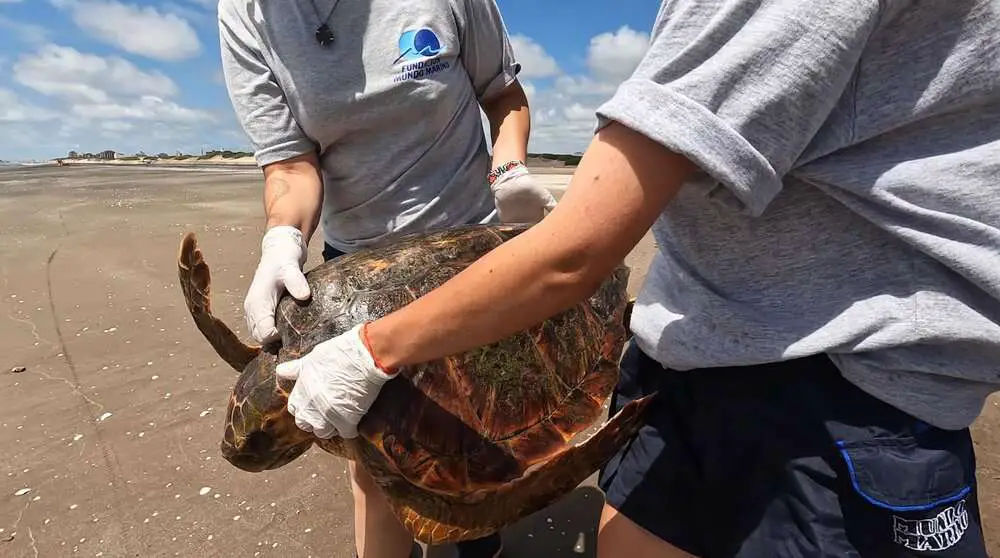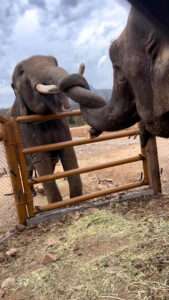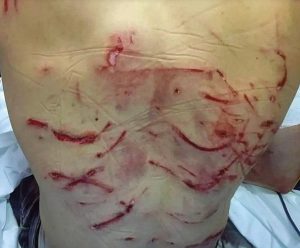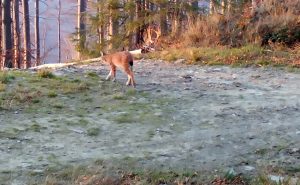Three endangered loggerhead sea turtles have been returned to the sea after they were rescued from fishing nets off the coast of Argentina.
Experts from Fundacion Mundo Marino set the three marine animals free on Tuesday, 20th December, after spending three weeks studying them.
The turtles had been found stuck in fisherman Roberto Ubieta’s net in Samborombon Bay, Buenos Aires Province, Argentina.
Ubieta had then alerted conservation authorities from San Clemente to collect the three 45-kilogramme (99-lb) turtles.
Fundacion Mundo Marino vet Candela Martelli said in a statement obtained by Newsflash: “In all three cases we observed that the animals had a good attitude.
“They began to eat on their own after a few days, something that in the case of turtles, can take longer.
“The only thing we detected is that, as far as their blood concentrations were concerned, they had low protein levels, which we were able to reverse with vitamin and amino acid supplementation.
“The reason for this could be that they were not eating a sufficient amount of food.”
Martelli added: “Being entangled in fishing nets and being animals that have pulmonary respiration, the observation time in the rescue centre is important to observe that the animal has not been affected by decompression syndrome, a symptom that could cause a pulmonary embolism, when suffering a sudden change in water pressure.”
Fundacion Mundo Marino has been a part of the Regional Programme for Sea Turtle Research in Conservation of Argentina (PRICTMA) since it was created in 2003.
The programme aims to contribute to the conservation of green sea turtles (Chelonia mydas), loggerhead sea turtles (Caretta caretta) and leatherback sea turtles (Dermochelys coriacea), whose predominant threat worldwide is bycatch in fishing gear.

Biologist and head of Fundacion Mundo Marino’s rescue centre Sergio Rodriguez Heredia, said: “Through satellite monitoring we confirm that these animals seasonally choose the waters of the River Plate estuary and Samborombon Bay to feed.
“That is where interaction with fishing nets is generated and the collaboration of fishermen is so important for conserving these species.
“We are very grateful to all of them.”



